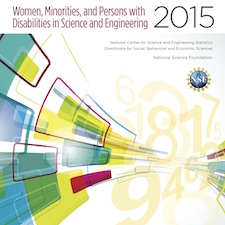Historically Black colleges and universities (HBCUs) enroll about 10 percent of all African American students enrolled in undergraduate programs in the United States. According to the U.S. Department of Education, in 2012, HBCUs awarded 34,013 bachelor’s degrees and 85 percent of these awards went to Blacks. Nationwide, African Americans earned slightly more than 185,000 bachelor’s degrees that year. Therefore, while HBCUs enrolled only about 10 percent of all undergraduate students, they issued 16 percent of all bachelor’s degrees awarded to African Americans.
 A new report from the National Science Foundation shows that HBCUs also play a major role in graduate education. This includes Black students in STEM disciplines. According to the report, in 2012 there were 31,338 Black students enrolled in graduate science and engineering programs in the United States. Of these, 4,162, or 13.3 percent, were enrolled at HBCUs.
A new report from the National Science Foundation shows that HBCUs also play a major role in graduate education. This includes Black students in STEM disciplines. According to the report, in 2012 there were 31,338 Black students enrolled in graduate science and engineering programs in the United States. Of these, 4,162, or 13.3 percent, were enrolled at HBCUs.
But there are many disciplines where HBCUs play an even larger role in the graduate education of Black students. For example, more than 39 percent of the Black students enrolled in graduate programs in agricultural sciences are enrolled at HBCUs. In pharmacology, 35 percent of Black students enrolled in graduate programs attend HBCUs. In biology, 32 percent of all Black graduate students are in programs at HBCUs.
Other scientific fields where more than 20 percent of all Black students are enrolled at HBCUs include anatomy, genetics, nutrition, atmospheric science, and physics.

